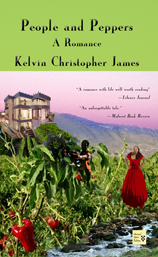A college student faces personal and political challenges in Tiananmen-era China.
In Huang’s debut novel, college student Gu Bao makes her way through an evolving China that is moving toward modernity but cannot escape the memory of the Cultural Revolution. The political and the personal are irrevocably intertwined in Bao’s world. She loves Tong but knows she will lose her place at the university if she is seen with him because students are expected to put their duty to the state ahead of romantic relationships; an off-campus dinner party revolves as much around preparing the perfect entree as it does around news and images from the ongoing protests. The protests at Tiananmen Square and elsewhere have tragic consequences, both on a national scale and close to home, as one of Bao’s friends is killed shortly before he was scheduled to leave the country. The conflict at the center of Bao’s story is a deeply personal one—she becomes pregnant and knows that having a baby will bring an end to her education and condemn her to a bleak future—but it’s also set against the backdrop of China’s authoritarian family-planning policies. When Bao travels to her grandparents’ rural home, she befriends a peasant woman who is concealing an illegal pregnancy. When the authorities discover the woman’s condition and order her sterilization, Bao sees firsthand that personal vindictiveness is as strong a force as party loyalty when it comes to enforcing the law. She acts to protect her friend but finds herself in unexpected personal danger. Huang does an admirable job balancing Bao’s individual story against the canvas of China’s evolution using crisply drawn characters who reveal their layers as the story progresses. Some readers may find the book’s opening scene, in which a young Bao encounters a renegade panda, overly fablelike, but Huang avoids the trap of overusing the panda as a metaphor in the book.
A knotty, engaging novel of China’s recent history.








